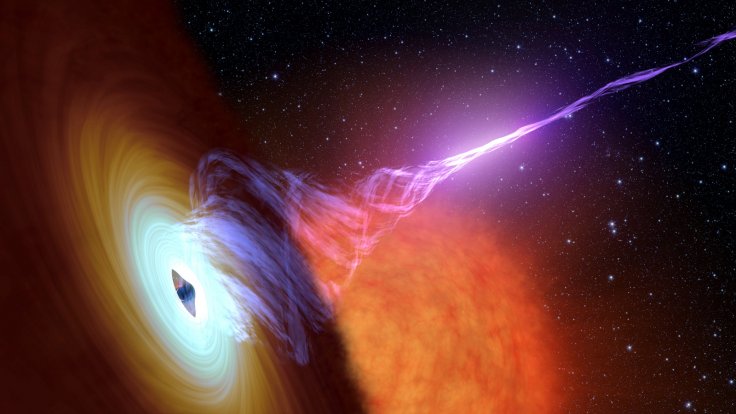Black holes are considered the most mysterious entity in the universe and scientists believe that there are more than 100 million stellar black holes in the Milky Way. These cosmic bodies usually form when massive stars collapse, and even light cannot escape from it. Until now, scientists believed that the mass of a stellar black hole in the Milky Way galaxy will be no more than 20 times the mass of the sun.
Chinese researchers discover black hole 70 times the mass of the sun

Breaking all the understanding of black holes in Milky Way, a team of Chinese researchers has now discovered a huge black hole with a mass 70 times greater than the sun. The research team led by Prof LIU Jifeng of the National Astronomical Observatory of China of the Chinese Academy of Sciences (NAOC) discovered this giant black hole at around 15,000 light-years away from the earth.
The research report published in the latest edition of journal Nature reveals that scientists have named this black hole LB-1.
LIU JIfeng said that such black holes should not exist in the Milky Way galaxy as per the current models that handle stellar evolution, and added that the discovery came as an unexpected surprise.
"Black holes of such mass should not even exist in our Galaxy, according to most of the current models of stellar evolution. We thought that very massive stars with the chemical composition typical of our Galaxy must shed most of their gas in powerful stellar winds, as they approach the end of their life. Therefore, they should not leave behind such a massive remnant. LB-1 is twice as massive as what we thought possible. Now theorists will have to take up the challenge of explaining its formation," said LIU in a recent statement.
As scientists have discovered a stellar black hole with 70 times the mass of the sun, space experts believe that it forces re-examine the models on how stellar black holes usually form.
The black hole mystery continues
A few months back, another study led by Todd Thompson, a professor of astronomy at Ohio State University had suggested that an entirely new class of black holes might be existing in the universe. As per researchers who took part in this study, these new black holes could be smaller than the already discovered smallest class of black holes.
Another recent study conducted by researchers had claimed that a supermassive black hole in the centre of Milky Way has started consuming unusual amounts of stellar materials. Scientists who took part in this study made it clear that they have never witnessed such an event before.









